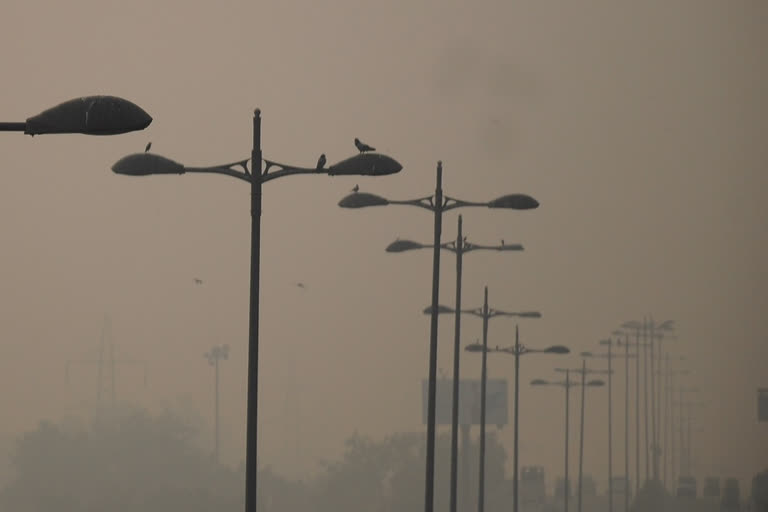New Delhi: The Lok Sabha members have raised at least 368 questions on air pollution in India from 2000 to 2019, with more than 200 of them raised in 2016 or later, with crop residue burning emerging as the most common source of interest, a new working paper has found.
Launched on Monday, the first day of the winter session of the Parliament, "Airing Differences? Reading the Political Narrative on Air Quality Management in India", the working paper by the Centre for Policy Research (CPR) cited the fact that more than 200 of the 368 questions were asked after 2016 and said, it reflected a sharp increase in political engagement in recent years in Parliament.
The working paper is a careful reading of nearly 11 hours of discussions on air pollution that took place in the upper and lower Houses of the Parliament in November 2019. As for the sources of pollution referred to in these questions, while industries, power plants and vehicles were the main sources targeted before 2016, crop residue burning has emerged as the most common source of interest in recent years, although vehicles and industries continue to receive some attention.
The most striking point however was that contrary to the long-held scepticism of the Ministry of Environment, Forest, and Climate Change regarding the findings of international health reports on air pollution in India, MPs across political parties extensively cited global evidence on the adverse health impacts of air pollution exposure, especially on children.
Read: Supreme Court slams non-compliance of states for alarming Delhi-NCR pollution
BJP's Dr Heena Gavit and Congress' Gaurov Gogoi were among the MPs who put forth their views while speaking at the MPs' Roundtable at the Centre for Policy Research where the working paper was launched.
"Air pollution is impacting health even in the rural parts of the country, so it's not just an urban problem. Today, farmers are also identifying the impact of climate change and air pollution on agriculture. Reports have estimated the economic loss of air pollution on lost labour cost to be around 30-78 billion dollars and as parliamentarians, we must take note of it and speak and act on it," Gavit said.
Gogoi said: "It's important to take air pollution from an episodic, winter-centric issue to a nationwide health issue. Starting 2015-2016, media attention around air pollution has been a driver of discussion. The year 2016 also saw one of the first civil society protests for better air quality in Jantar Mantar. Several research reports ranked Indian cities on the list of top-most polluted cities in the world. Any lawmaker, any government will be sensitive to this. Over the years, there has also been research that makes clear the impact of air pollution on health, and this is a compelling reason for this issue to get attention."
Reflecting on an issue of growing political salience in India, the paper also offers insight into significant developments and gaps in the political discourse on air pollution in the two years since these discussions, and into the present day.
IANS



